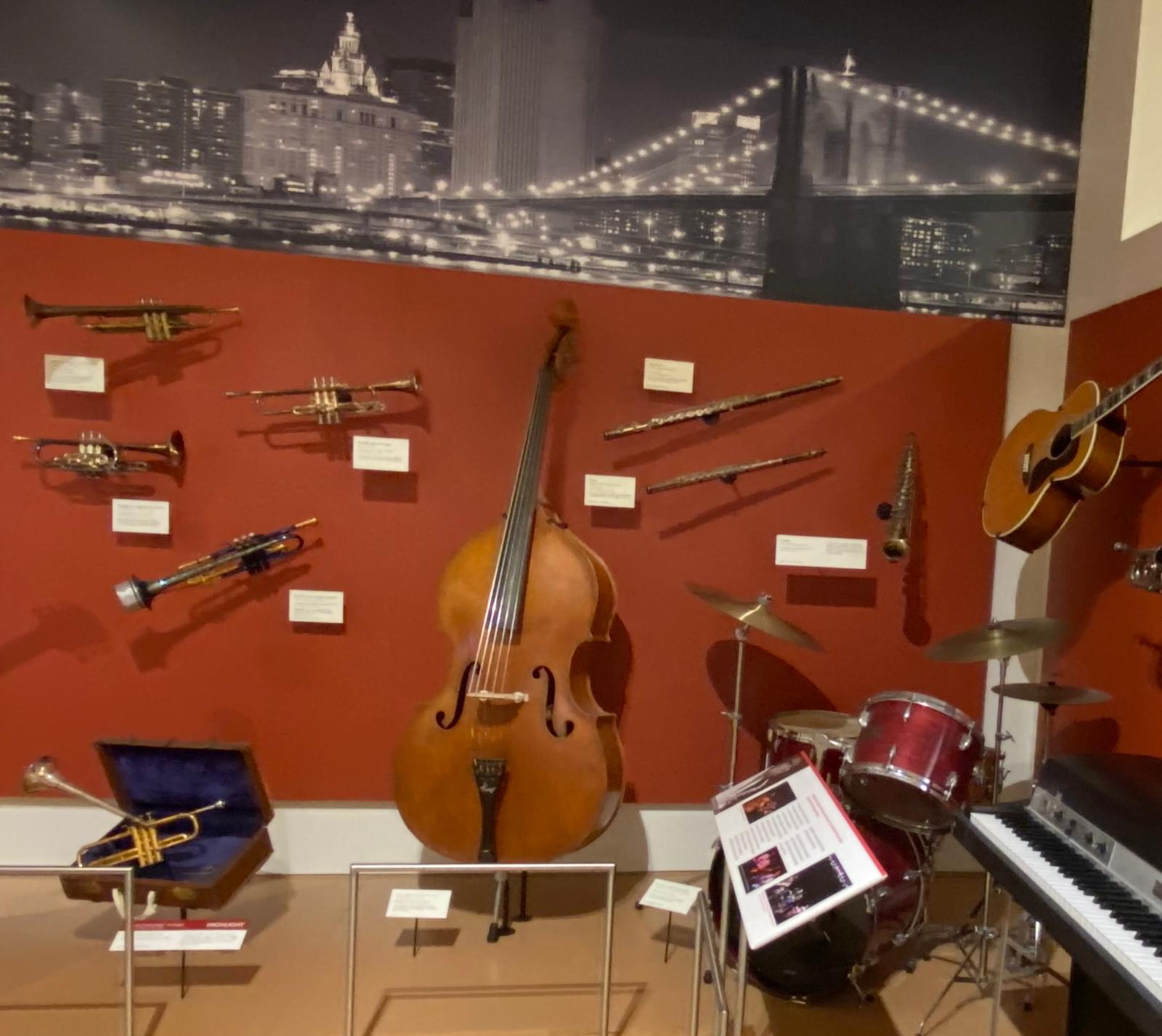
In Search of Joy
I am a sucker for a good story about human survival and the building of resiliency within
individuals and communities. I love the grittiness and messiness that lives in the human
experience and the What Happens Next and What Do We Take From This? I was recently
privileged to hear such a story of tragedy and the ability to great beauty within the rubble. This is
the story of Vedran Smailović, known as the “Cellist of Sarajevo,” and it is a poignant example
of finding and creating beauty in the darkest of times. In the midst of the brutal Siege of Sarajevo
during the 1990s, Smailović chose to play his cello in the ruins of his city, specifically to honor
the 22 people who were killed while waiting in line for bread. His act was more than just a
tribute; it was a defiance against the horrors of war and a statement that beauty, art, and humanity
could persist even in the face of overwhelming darkness.
The message of Smailovićs’ story, and the way it is echoed in the novel The Cellist of Sarajevo,
teaches us that joy and beauty are not just things that happen to us—they are things we can
choose to create and share, even when circumstances seem hopeless. The characters in the novel,
though they do not directly interact with the cellist or each other, are each profoundly affected by
his music. His playing becomes a symbol of resilience and a reminder that the human spirit can
find ways to endure and even flourish, despite the surrounding despair.
In this story, the search for joy is not about finding it in conventional places but about creating it
where it seems impossible. It shows that joy can be an act of resistance, a way to assert one’s
humanity in the face of dehumanizing conditions. The cellist’s music, echoing through a war-torn
city, symbolizes the power of art and the human capacity to find meaning, beauty, and
connection, even when everything else seems lost.
Ultimately, the lesson is that joy is not something passive that we wait for; it is something we
actively cultivate. Even in the darkest times, we can choose to create moments of light, and in
doing so, we can inspire and uplift others around us. This search for joy becomes a lifeline, a
way to maintain hope and dignity when it feels like everything else has been stripped away.
I encourage you – find the light today.
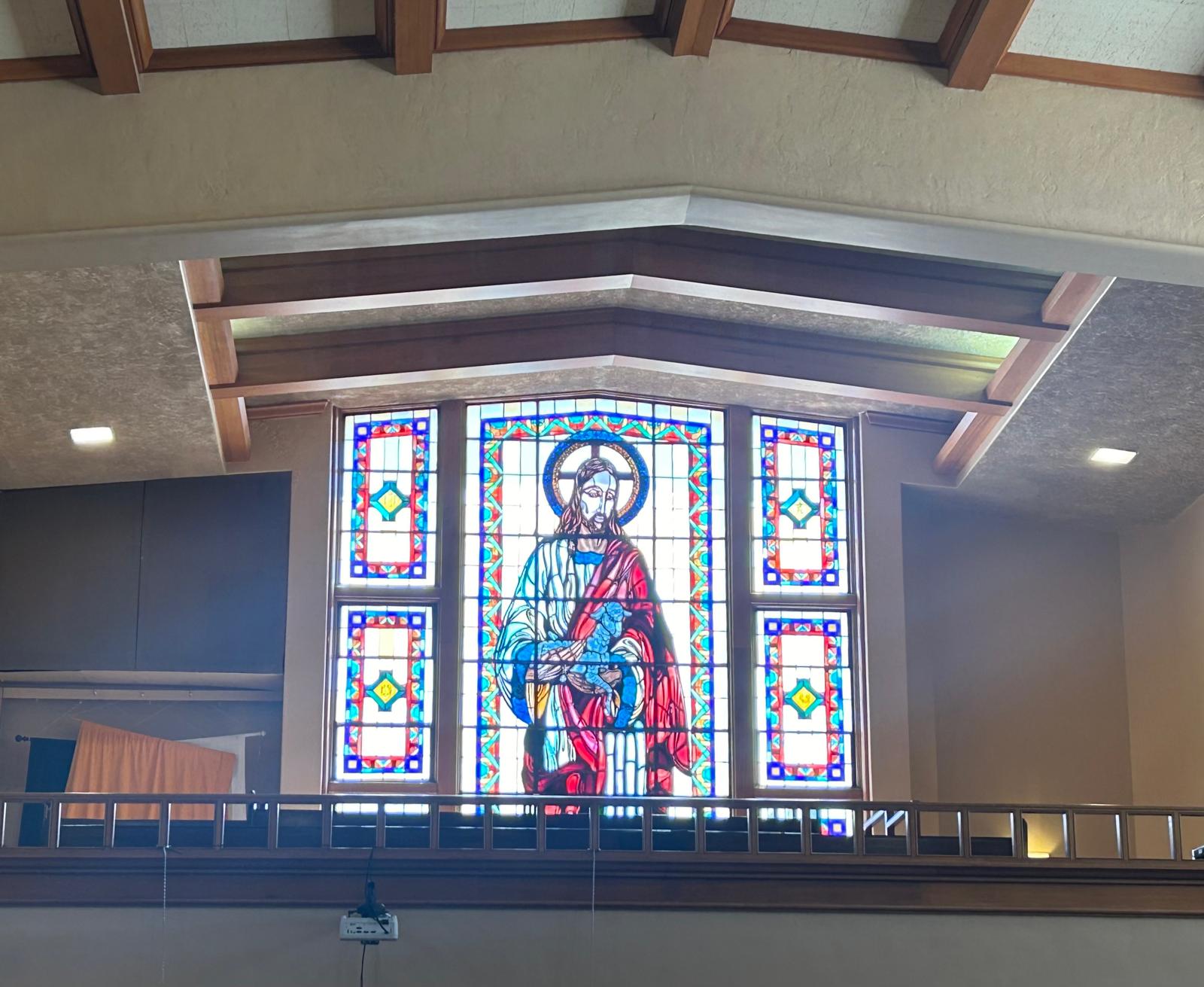
Balcony Time
When I was a child, my favorite place to be in the church was in the balcony. I remember feeling
as if no one could see me as I sat, sang, read, chatted, and shared snacks with my fellow young
balcony dwellers. This space became a haven, a place of freedom and a unique perspective on
the world below.
The balcony provided a literal and metaphorical elevation. From that vantage point, everything
seemed different—clearer, yet somehow more mysterious. It was a place where we felt a certain
autonomy, away from the direct gaze of adults, which allowed us to experience the service in our
own way. The hymns sounded sweeter, the sermons more distant, and the sense of community
among us kids was palpable.
Balcony time was more than just a physical location; it was a state of being. It represented a
space for reflection, camaraderie, and a touch of mischief. We were together, yet also alone in
our thoughts, able to observe the world around us from a safe, elevated distance. It was a place
where we could engage with our surroundings without the pressure of constant scrutiny.
As I reflect on those times, I realize how important that sense of space and freedom was, and still
is! It was a formative experience that taught me the value of having a place to retreat, to gain
perspective, and to simply be myself. In many ways, that balcony time was a microcosm of what
we seek in our daily lives—a balance between community and solitude, engagement and
observation.
Today, the idea of balcony time still resonates. Whether it’s a physical space like a balcony or a
metaphorical one, having a place where we can pause, reflect, and observe is crucial for our
well-being. It’s about finding moments to step back, gain perspective, and appreciate the world
around us from a different angle.
So, let’s cherish those balconies in our lives, both literal and figurative. They remind us of the
importance of creating space for reflection and connection, a place where we can enjoy the view,
both inside and out.
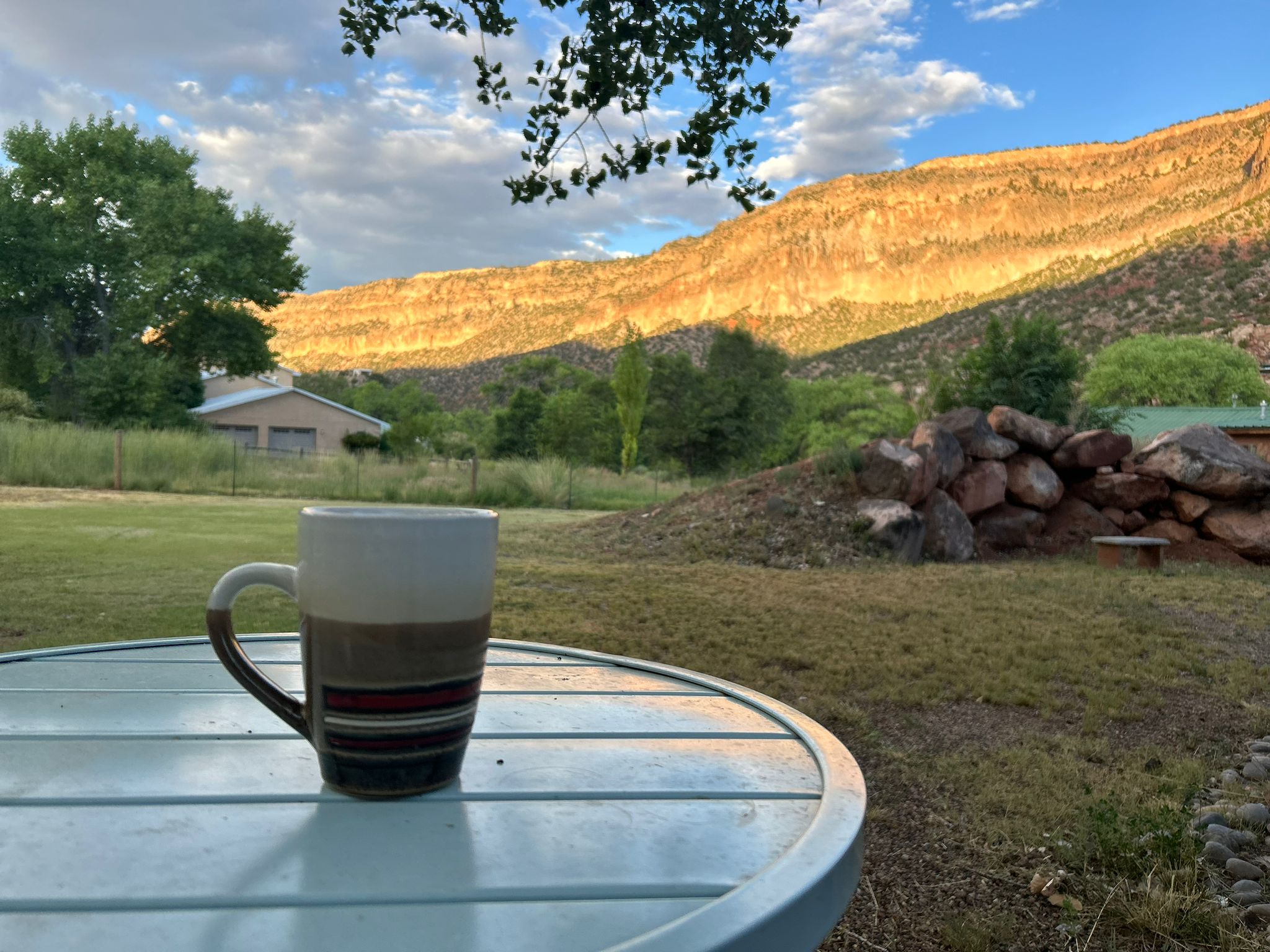
Thin Spaces
In the fall of 2019, I had the privilege of participating in a retreat for mental health and spiritual
care providers focused on the theme of Thin Spaces. I was familiar with the concept of Thin
In the fall of 2019, I had the privilege of participating in a retreat for mental health and spiritual
care providers focused on the theme of Thin Spaces. I was familiar with the concept of Thin Spaces, but to say I had spent any time contemplating or discerning what this concept means to
me would be misleading. As you can imagine, I was both excited and hesitant to delve into the
topic as I had a deep suspicion the retreat would be more about how I was to embody Thin Space
then it was for me to simply digest the concept to then teach it to others. To be completely
vulnerable here is to say that I am one who is used to being the practitioner and not the patient
and I am not naturally good with the tables turned.
This particular retreat took place at a picturesque retreat space in Northern New Mexico. The
backdrop of the location seems to be almost AI generated as the sky was perfectly open the
entire two-days of the retreat and seemed to be the clearest blue/aqua color you can imagine, and
don’t even get me started on the mountains!
I remember the retreat facilitator well; she was a small-framed petit woman who seemed to slide
about the space effortlessly and she spoke in a comforting and clear manner which drew all 12-
participants in as if we were simply feeding on every word. She began by speaking on the topic
of Thin Spaces as transitional and transformative areas that exist between two distinct spaces.
She spoke of the connection to the Divine and the importance of allowing for a heightened sense
of connection to the divine or the transcendent. The second half of the day was focused on Thin
Spaces as symbolic periods of personal transition, such as rites of passage, where individuals
move from one stage of life to another, including career and call. These spaces and marks of
time, provide opportunities for introspection and self-discovery, helping individuals process
changes and grow emotionally and psychologically.
By the conclusion of Day I, I was exhausted but filled. Falling asleep was easy and waking to
Day II seemed seamless. Day II was a day of silent retreat where our assignment was to
contemplate our Thin Spaces – what we were experiencing now as a period of personal transition
and where we considered our physical Thin Space to be.
Today, I find myself in a new Thin Space and I plan on visiting my physical Thin Space soon. I
believe this is a time that finds each of us longing for Thin Spaces in a multitude of ways and I
encourage each of you to sit and contemplate this time of transition and transformation,
connection, reflection, and growth. Recognizing and embracing Thin Spaces so they can lead to
deeper understanding and appreciation of the complex and interconnected nature of all you are
and all you are in this world.
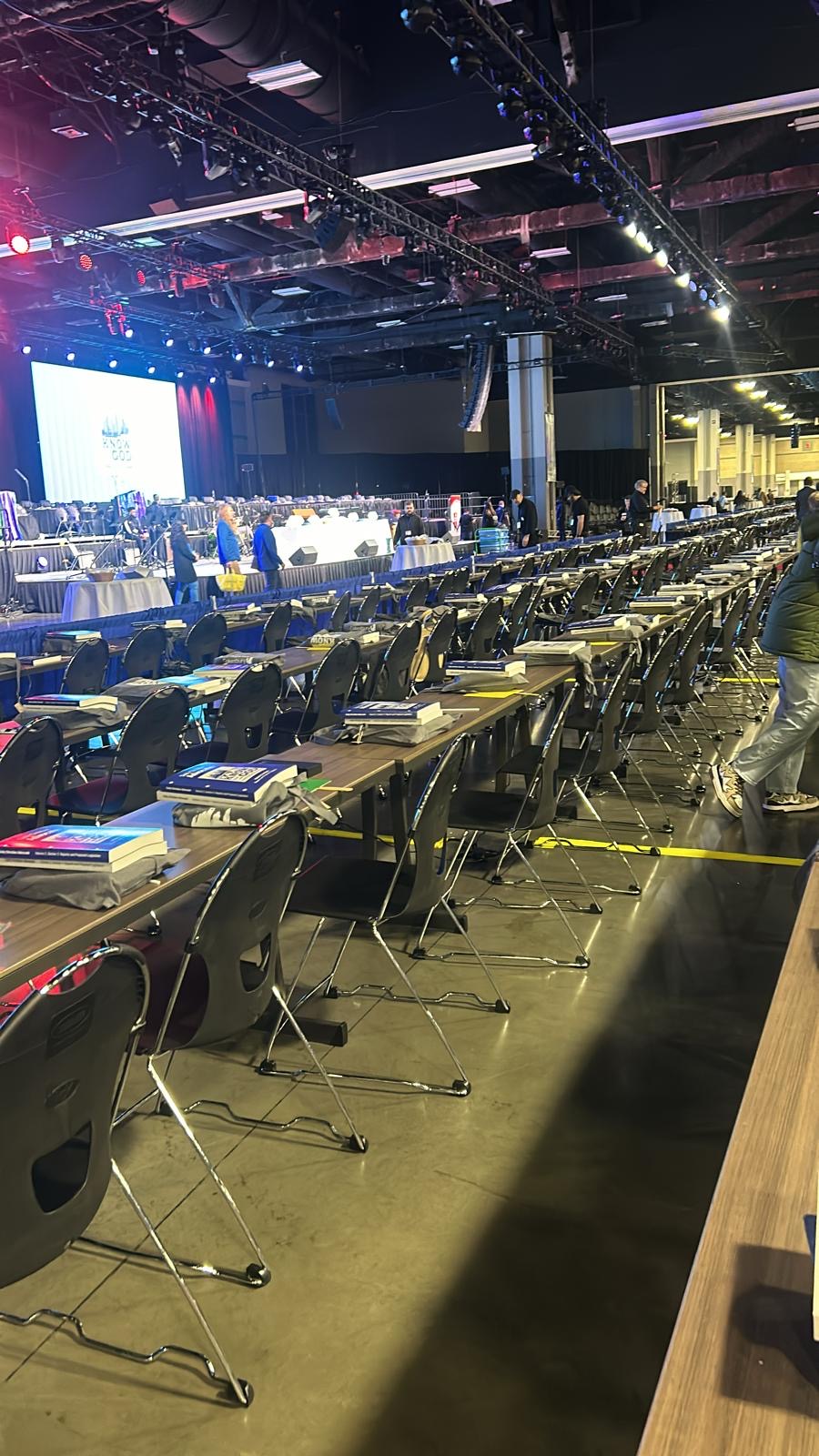
How We Gather
For the past week, I have found myself serving the United Methodist Church’s General
Conference as a Page. A Page, in this setting, is akin to a legislative runner as the work primarily
takes place up close and personal on the floor of each conference session, ensuring the voting
delegates have what they need, and that information flows with little disruption to those who
need it for the work of the whole to ultimately and seamlessly accomplish the goals of the
conference.
Without getting into the weeds of this process or the polity of the United Methodist Church, I
wanted to take a moment to reflect on how we as humans choose to gather, organize, and
fellowship with one-another. This process of how we do life together is what the fields of
psychology, sociology, and the like refer to as Systems Theory. This intrinsic manner of
organizing dates to the beginning of the reporting of humankind, as all creation came to be
organized in systems of connectionism. We know that systems are not intended to remain static
as evolutions in the system occur and often create stress fractures as a side effect of growth – and
as systems are created to do, the system adjusts.
What has struck me as curious on multiple occasions during the first week of this gathering is
how this subset of people operate in this ever-evolving and stress-fractured system. Unlike
organically created systems, this particular system has been created out of choice, and those who
continue to operate within this system have endured the test of time and continue to do so out of
choice. This choice to gather, organize, and fellowship is one that brings the highest sense of joy
and accomplishment to many, and simultaneously brings the most challenging and painful points
of harm and anguish to many – and the system adjusts.
The choice of how we gather and the system we choose to participate in is ours to make.
Whether we choose to gather with friends or family at the dinner table; or we choose to gather in
conference-style settings; or we choose to gather for worship in community or in solidarity; or
we choose to gather in protest; or we choose to gather over the simple elements of grape and
grain; We choose to gather…
So today, I invite you to take a moment to reflect on how you choose to gather. I encourage you
to reflect on the polarity between joy and accomplishments from systems you choose to
participate in, and the painful points of harm and anguish that these fractured systems sometimes
cause, because it is in the reflection of it all, where we find ourselves – and the system adjusts.
Blessings on this journey,
Kelly
www.ChrysalisCounselingForClergy.org
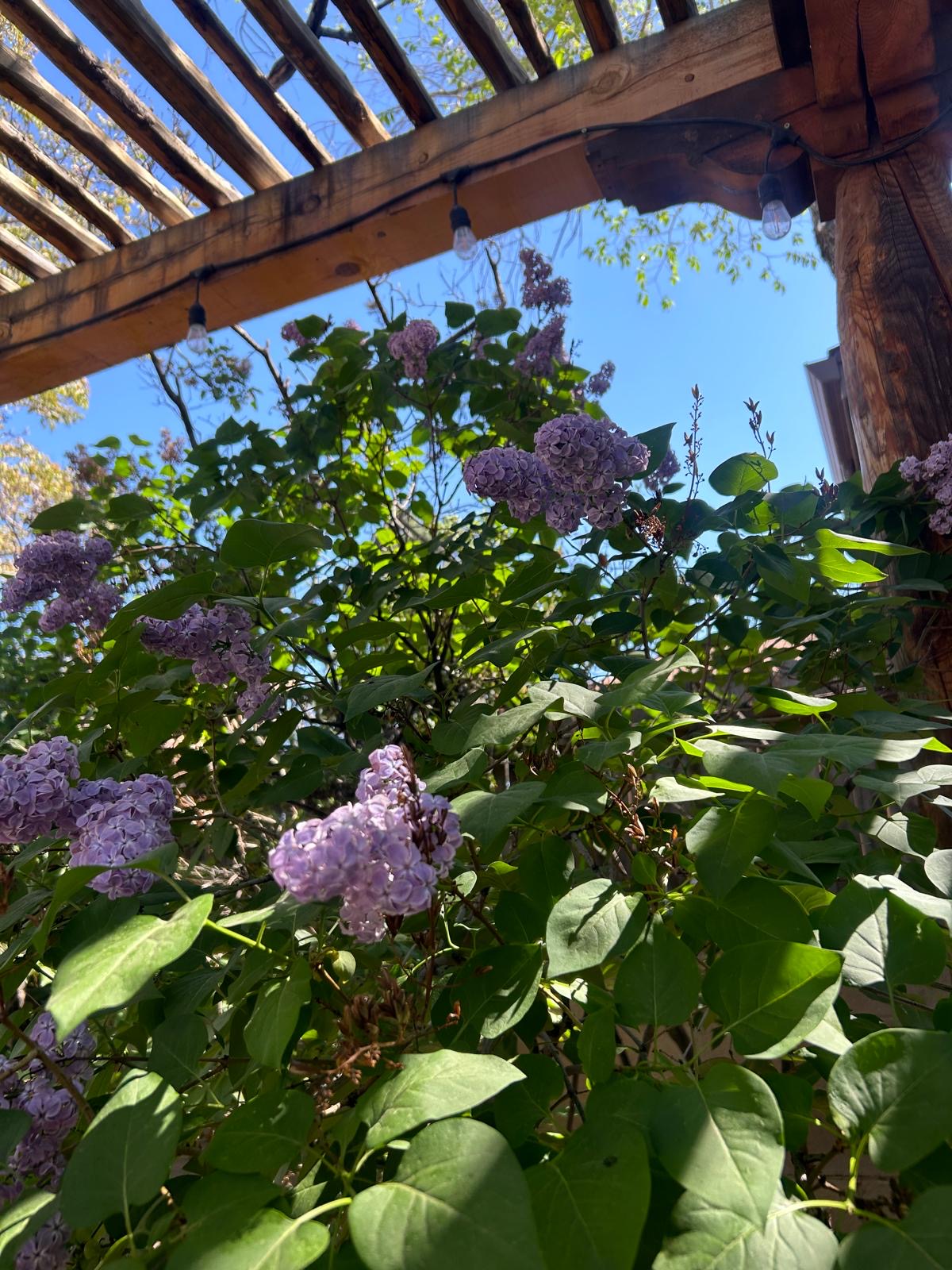
How Does Your Garden Grow
In my romanticized version of spring, I take myself as an urban gardener – not farmer, but a
gardener. And I say romanticized as it is the warming of the days and in the cooling temperatures
of the evenings that I find myself inspired and joyfully shopping for flowers and plants at the
nursery next to my home as I imagine what my urban garden will be in just a few days’ time.
The problem being: I seem to lack the patience to maintain and nurture the plethora of flowers
that I purchase and planted on Day One. I quickly forget to water, weed, and nurture my
romanticized version of my urban garden.
To give a little context – My mother was raised on a farm and my father was raised on a ranch,
both in Eastern New Mexico. Based on stories told by family, my father quickly realized that the
ranch life was not for him, and my mother took the approach that planting edible vegetation was
equal to work and memories of childhood chores, and now leans toward the flower-only type of
gardening – which I will add, she excels at!
And isn’t this life? We each possess romanticized versions of one thing or another based on
stories we are told or read about, we became excited and engaged, and then we lose steam
becoming discouraged or even disgruntled. We easily can point to scripture references of
flourishing gardens – from Genesis to Revelation, to the first appearance of Christ, there is no
lack of leasons in foliage. When we are in our romanticized selves, we sometimes forget the
bountiful scripture references that exist that point us to the challenges in tending, weeding, and
pruning – the very lessons that we must learn to fully appreciate what we sow.
Today, I invite you to consider what it entails to grow your metaphoric garden – starting at the
excitement of the season, to weeding and pruning, and finally to the celebration of the harvest.
Bountiful blessing to you in this season,
Kelly

Free Moon Pies!
Last Monday, I had the opportunity to view the eclipse in Dallas, TX with a group of clergy
leaders from various parts of the southern region of the United States. The event was met with
great optimism despite the cloud coverage was predicted to be great, with little chance of a clear
view of this celestial event. As is the case with so many unpredictable and uncertain
circumstances, the cloud coverage seemed to only be earlier in the day, and the eclipse showed
itself around 1:40pm with all the grandeur and joy we were each promised. The moment was
even greeted with the song Total Eclipse of the Heart playing loudly from speakers in the area
and Moon Pies freely distributed. What a day!
It would be easy for me in this moment to wax and wane in an attempt to compare the eclipse to
our lives in ministry. To say things like, “In essence, while an eclipse may symbolize temporary
darkness and disruption, it also represents the cyclical nature of change and the potential for
renewal. Likewise, the challenges faced by clergy during uncertain times can be seen as
opportunities for personal and spiritual growth, ultimately leading to a deeper understanding of
their role and a stronger connection to their communities.” But, this is not how I authentically
experienced this extraordinary event. What I experienced was awe – and an awe that I was able
to experience in a community I choose to share this particular day and this particular moment
with. Perhaps it’s as simple as that.
I believe this is the gift of extraordinary events – events that give us the sense of awe and joy,
laughter and the sharing of nostalgic music and moon pies.
So, take time today to open yourself up to experience the extraordinary gift of community and
awe, perhaps even a moon pie.
With gratitude, Kelly
Photo Credit: Jeff Blaylock
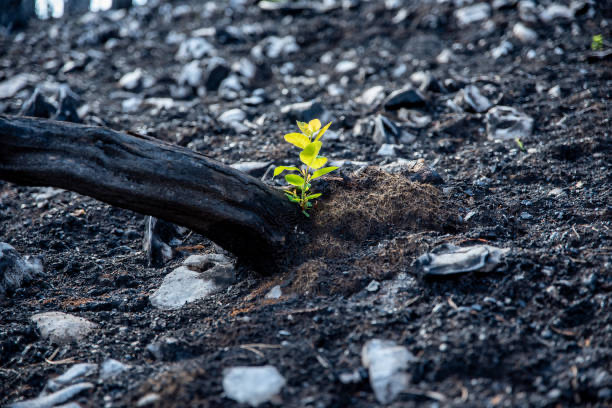
Discernment by Nausea in a Season of Remembrance
I recently heard the phrase, Discernment By Nausea and I was immediately drawn to it. Perhaps it is because of the season of Lent that we are entering into or perhaps it is because of the season I have personally found myself in and perhaps it is a little bit of both!
The thought behind this phrase is that we often play it safe when it comes to our lives in faith. We get comfortable in the predictability of our day to day’s – the rhythm of waking up and having that first cup of coffee, walking into our offices and preparing for the day ahead, and simply doing the work instead of experiencing the work that we have been called to. This calling is not always a comfortable experience for us and can make us feel a little queasy at times, but the process of pulling us from that which is uncomfortable to experiencing the fullness of that which we are continually being called to is a process worth exploring.
I encourage each of you to take a deep breathe in and begin to contemplate where the Spirit is leading you – perhaps out of your comfort zone into a season of Discernment By Nausea!
The Chrysalis Team is here to offer support and guidance in this and every season.
Care to you this day,
The Chrysalis Team
Learn More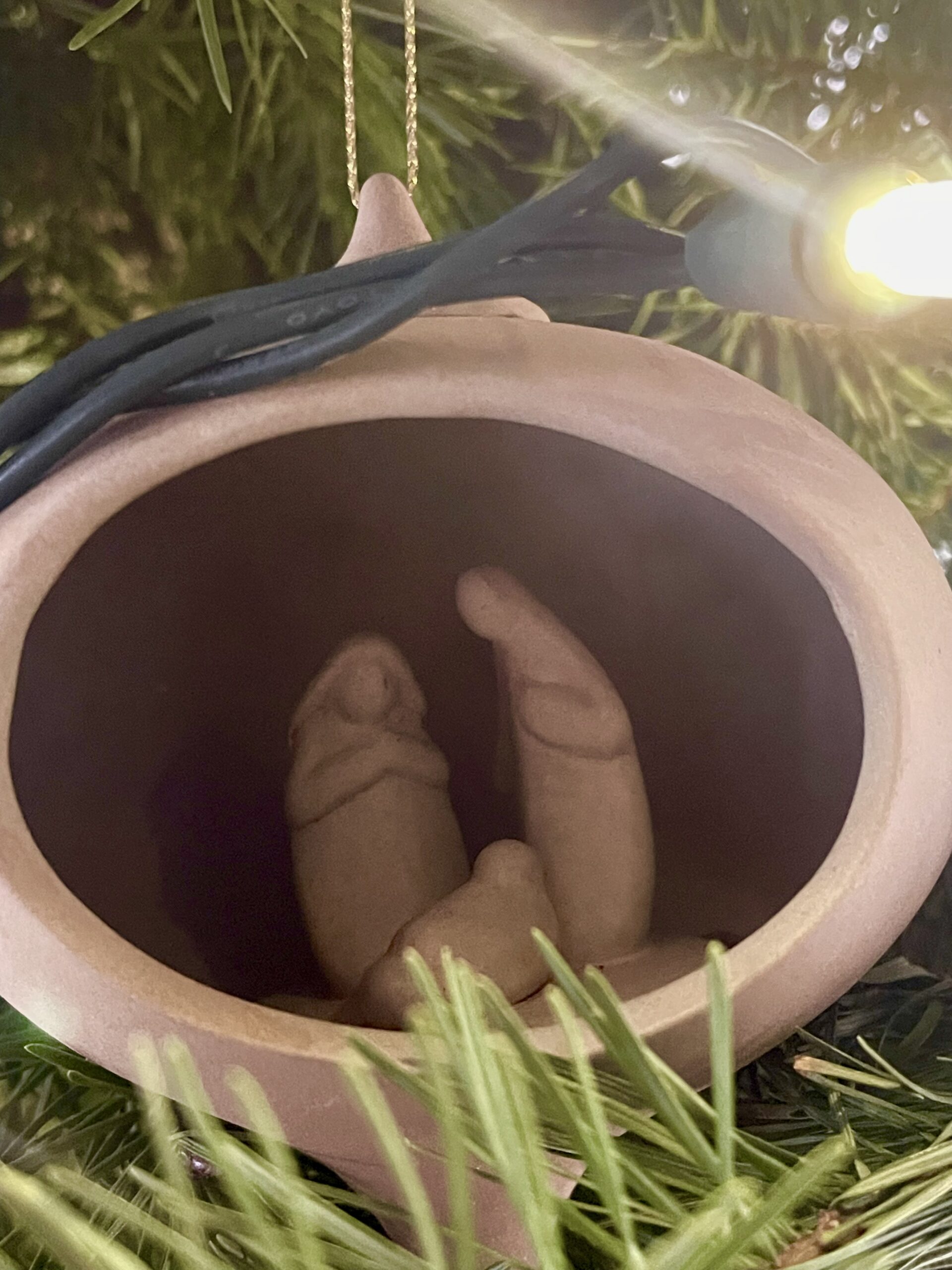
How Much Light?
The Christmas tree glows in the corner complete with a tree topper star that projects
snowflakes onto the ceiling. Meanwhile the electric wreath hangs in the window shining its LED
blessing onto the outside world. Another Christmas tree, the small plastic one with the built-in
lights, sits in another room of the house serving as a kind of seasonal night light. Light
everywhere! Come, Lord Jesus. Come.
This actually feels like too much to me. When it comes to holiday decorating—and I mean any
holiday—I am a minimalist. This is especially true for Christmas. My kids and I have some
decorations that we put out, and we have our real and fake trees, but that’s about it. I don’t do
outside lights, I don’t do blow-up yard ornaments, and I sure don’t have a soundtrack that
orchestrates the whole thing.
To me, a little light is all that is needed. A little light breaks the despair of darkness without
burning the retina. A little light reminds me that sometimes that is all that is needed to
cast out fear, to break the power, and to bring hope.
Advent is a one-candle-at-a-time kind of season. It is a season that builds. It is a season that
refuses to overpower. It is a season that invites patience and time to ponder. It is a season that
waits
In this time of lighting candles one by one, Chrysalis invites you to find just enough light for today. If we can help with that,
please know that we are right here. As the old saying goes, “We would rather light a candle than curse your darkness.”
Come Lord Jesus. Come.
The Chrysalis Team

Gauges
If I’m honest I really only look at two gauges on the dashboard of my truck. I watch my
speedometer and I check my gas gauge. I know that there are other gauges in my information
cluster: tachometer, battery charge, oil temperature, and maintenance. But the truth is that I
only notice this information when something goes wrong or when it beeps or flashes. Most of
the time I just trust that everything is going to work when I start the vehicle.
How many gauges do I pay attention to when it comes to my life and ministry? Over the course
of my career I have certainly known when I was running on empty, so to speak. Sadly I usually
found out how low my tank was when it was too late and I was coasting to a stop. I’ve also
been aware when my engine has been running too high and the stress of pastoral ministry was
making me feel out of control.
What about you? What gauges do you watch? What information do you look for that indicates
whether you’re healthy or not in ministry?
At Chrysalis Counseling for Clergy we know that healthy ministry involves multiple aspects of
life: spiritual, mental, emotional, social, and financial. We also know that pastors are often so
stressed that they fail to see the lights on the dashboard flashing when one or more of these
areas needs attention.
If you paused for a moment this week and took a good long look at the dashboard of your life
and ministry what would the gauges tell you? How full is your spiritual gas tank? Is your mental
tachometer revving high or nice and smooth? Does your emotional gauge show hot or cold? Is
your social life in neutral, park, drive, or reverse? And what about your financial indicators: are
you upside down or right side up?
Is a mechanic or technician needed after this assessment? If so, please reach out to us at
Chrysalis Counseling for Clergy. We are here to help clergy find wholeness and health in
ministry.
Here for the Long Haul,
The Chrysalis Team
Learn More
Faith and Ministry
One of the issues that can exist for pastors is the blurring of the delicate line between faith in God and loyalty to the church. We hear the story often at Chrysalis Counseling for Clergy. A person experiences the grace of God in a profound way, they have a sense of calling to serve God, and they find a way to live out that calling in the church. In one sense this is the beauty of communities of Christ that nurture the gifts of people and empower them to serve.
But what happens when a person’s experience of the church is a difficult one? What happens when a pastor and a congregation are at odds? What happens when a pastor experiences burnout, physical, or mental health issues, in their ministry? Sometimes the experience of ministry makes clergy question their own faith in God. In these moments clergy may equate faith in God with “successful” ministry. Conversely, they may consider the difficulties of ministry as a failure, or lack of faith. In these moments clergy sometimes create a cause/effect relationship between ministry and faith. This is when we at Chrysalis start hearing phrases like, “I just need to pray harder… I need to be more faithful…I can’t forgive myself…”.
Perhaps a healthier understanding of this tension would be to remember that ministry is an expression of our faith in God. Ministry is the vocation in which we live out our faith, but ministry in and of itself is not our faith. Instead, our faith is in God through Jesus Christ and the Holy Spirit. God will never fail us. God’s love is steadfast and unfaltering. Ministry has ups and downs. Ministry has peaks and valleys. Because ministry it is inherently tied up with people it is an experiment in the tension of sin and grace. People can fail us and we can fail people. God’s love never fails.
Perhaps this is why it is helpful for clergy and ministry leaders to make frequent analysis of their own spiritual life and practices. A list of devotional and formative practices that inspire and ground clergy is too numerous to compile here. However, clergy tend to know—whether they admit it or not—if they are really paying attention to the spiritual life.
At Chrysalis Counseling for Clergy we are here to walk alongside clergy in supportive ways. If you are struggling with a scenario like the one described above we can help:
- Differentiate between faith and ministry
- Plot out constructive life/ministry balance
- Help identify spiritual practices
- Listen
We are here to help.
Learn More

